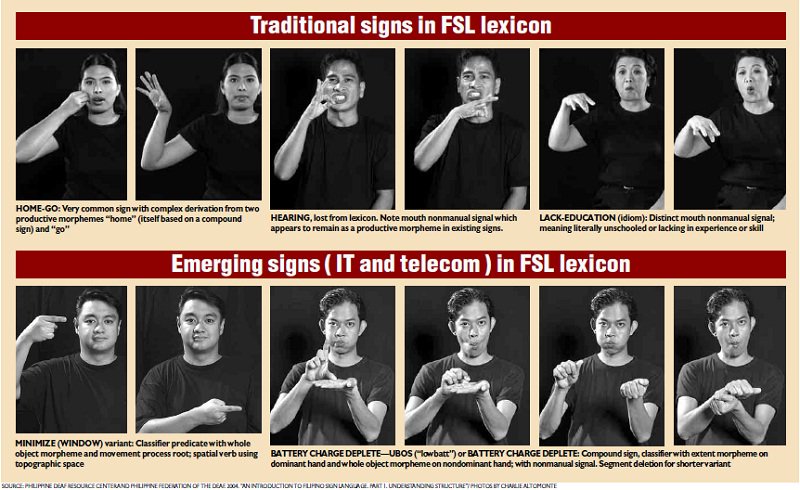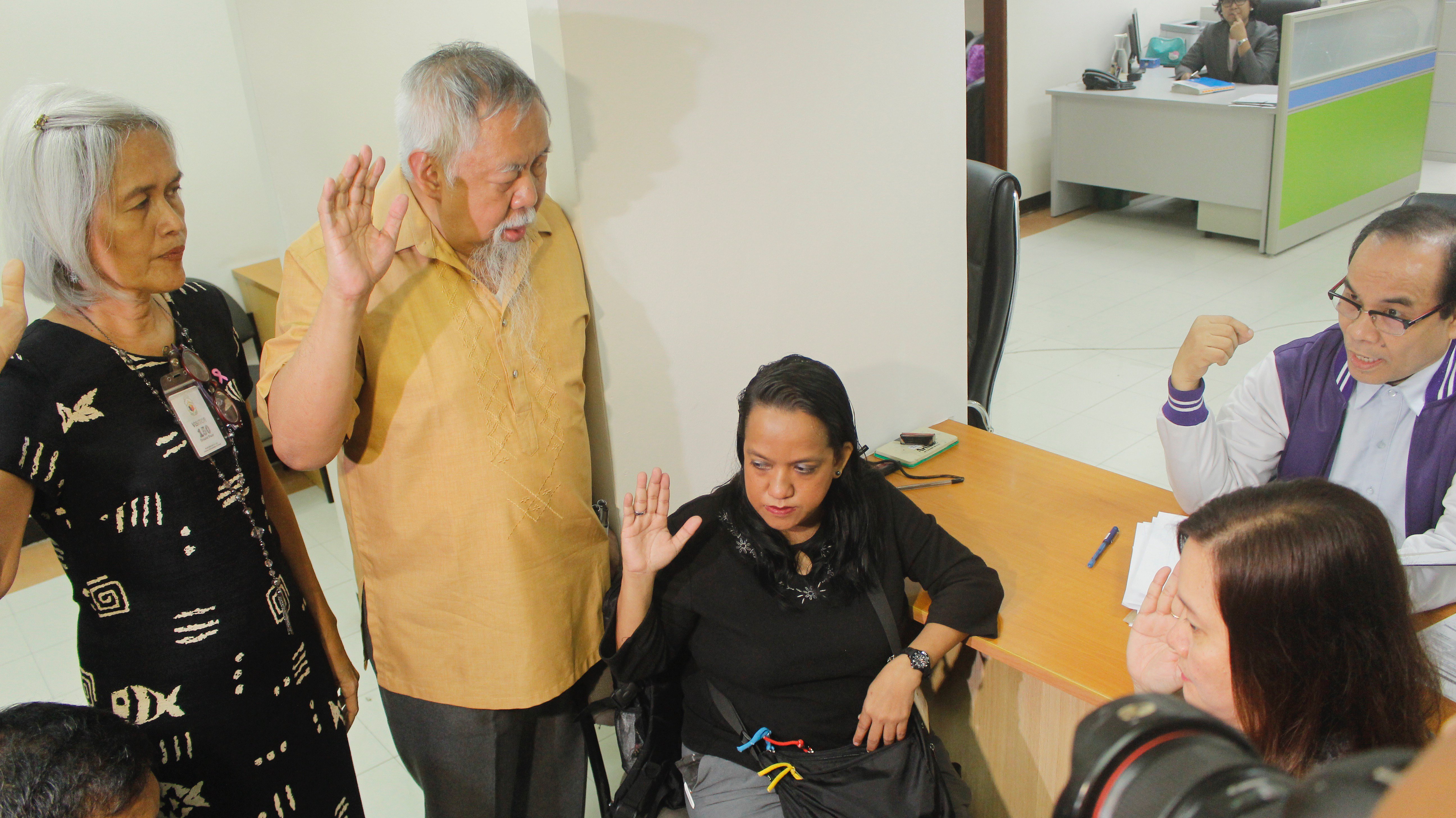Almost three months after the Senate passed the Filipino Sign Language (FSL) Bill in a bid to “promote the rights of the deaf to identity, expression, and communication,” President Rodrigo Duterte signed yesterday the bill into law, declaring FSL as the national sign language of the Filipino deaf.
This means that FSL shall now be recognized and supported as the official medium of communication in all transactions involving the deaf. “In compliance with the United Nations Convention on the Rights of Persons with Disabilities, the state shall promote, protect, and ensure the full and equal enjoyment of all human rights and fundamental freedoms of person with disabilities,” the newly passed law states.
To ensure that all agencies will be compliant of the mandates of this law, here’s a run-through of the policy:
1. Deaf education is not limited to learning about reading, writing, and communicating

The law mandates the Department of Education, the Commission on Higher Education, the Technical Education and Skills Development Authority, and other national and local agencies involved in deaf education to create a new separate curriculum for deaf learners. The agencies should also coordinate with each other on the use of FSL as the main medium of instruction. This is to prevent confusion because some schools employ different sign systems, such as American Sign Language and Signing Exact English.
The guidelines and training materials to be used by schools for the deaf will be developed by the mentioned agencies above, along with the University of the Philippines, Komisyon ng Wikang Filipino, and Early Childhood Care and Development.
2. FSL should be offered as an elective subject in regular and mainstream curriculum of SUCs
To further promote the use of FSL for communicating with the deaf, state universities and colleges (SUC) should have “appropriate steps to propagate sign language competency among hearing people by offering FSL as an elective subject” in all curricula, regular or mainstream.
3. PRC should employ new assessment procedures to promote licensing and mobilization of deaf employees
Section 7 of the law states that all government offices should “encourage the use of FSL among its deaf and hearing employees” by conducting training seminars on the rational and use of FSL. The Professional Regulation Commission (PRC) should likewise implement alternative assessment procedures that considers the conditions, abilities, and social barriers of deaf teachers.
4. A sign language interpreter should always be available for proceedings involving the deaf

A qualified sign language interpreter should be involved in hearings, proceedings, and transactions that involve the deaf, without prejudice to his/her right to choose other modes of communication. “The Supreme Court and other concerned agencies shall promote appropriate training for those working in the administration of justice, including hearing interpreters, deaf relay interpreters, and other court personnel,” the law states.
Support staff are required to undergo training on the translation from FSL to written Filipino or English.
5. MTRCB should include an FSL interpreter in all broadcasts and programming
The Movie and Television Review and Classification Board (MTRCB) are tasked to use FSL interpreter insets for news and public affairs program. Within one year from the signing of the law, broadcast programs should comply with the accessibility standards for television, especially in educational television programs for children.
All news videos posted online should also conform to the media accessibility standards.
Although this law will be monitored by a government inter-agency committee, it is important that we also do our part in making this country more inclusive with the deaf community and all persons with disabilities.
Header image courtesy of Inquirer Libre
Get more stories like this by subscribing to our weekly newsletter here.
Read more:
Everything you need to know about the deaf’s experience of music in 12 minutes
New House bill appoints health workers within indigenous groups
Feeling sick? You might just need to go to the museum
Read more by Amierielle Anne Bulan:
Photo exhibit speaks volumes on “silence” on mental illnesses
“DDS,” “dilawan,” and “troll” among nominees for this year’s “Salita ng Taon”
How often should you get your flu shots? Yearly, studies say
Writer: AMIERIELLE ANNE BULAN




